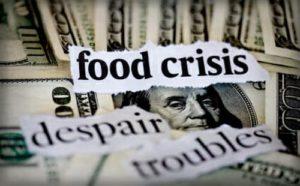A lot of big names will report third-quarter earnings this week, and the results are expected to be worse than the same period in 2018.
The timing comes as the shale sector is facing somewhat of a reckoning. After years of price volatility – with more downs than ups – oil prices have failed to return even remotely close to pre-2014 levels. For several years, shale E&Ps took on debt and issued new equity, promising investors that they would profit both from a rebound in prices and from rapid production growth.

They delivered on gains to output, but not on profits. At some point in the last year, investors really began to lose faith. Oil stocks have been the worst performers in the S&P 500 this year.
The latest release of earnings will probably do little to quell unease from big investors. Oil and natural gas prices have dropped this year, by about 17 percent and 31 percent, respectively. Job cuts have returned and bankruptcies are on the rise again.
The oil majors are pressing forward with their aggressive shale development plans. That may prevent a noticeable decline in production. But their earnings – many of the majors report this week – are expected to be down roughly 40 percent from a year ago, which will raise some tough questions.
Some of the largest banks have slashed their credit lines to smaller shale E&Ps. According to Reuters, JPMorgan Chase, Wells Fargo and the Royal Bank of Canada are among some of the lenders that have reduced the amount of credit they are offering to drillers.
The so-called credit redetermination period happens twice a year, and banks tend to offer to finance based on a company’s reserves. Lower prices lower that assessment because some reserves become uneconomic to produce. As a result, the ability to access financing becomes more restricted.
Closing off the ability to borrow money could force more companies into bankruptcy. There have been roughly 199 bankruptcies from North American oil and gas companies since 2015, according to Haynes and Boone, LLP. Through September, there have been 33 bankruptcies in 2019, the highest number since 2016. There were 7 bankruptcies in September alone.
As Reuters notes, the backup plans for stressed shale companies are limited. Asset sales may not be a viable path – M&A activity has fallen sharply as buyers spurn troubled projects. In fact, activity in M&A is so weak that investment banks are slashing positions on their energy desks.
Likewise, returning to equity markets for a cash injection is essentially a non-starter. And as mentioned, banks are loath to agree to lend more. The only option is to cut spending.
Last week, the U.S. rig count fell by 21, the largest decline in six months. In fact, the rig count has declined for 11 consecutive months as drillers pull back.
“As yet, the decline in drilling activity is not reflected in lower production growth, but this is probably only a question of time,” Commerzbank said in a note on Monday.
“It is already the case that shale oil production is rising noticeably only in the Permian Basin, and only slightly at Bakken. It is already falling in other shale plays such as Eagle Ford and Anadarko.”
There is also growing scrutiny on the amount of oil and gas produced relative to what companies have promised. Bloomberg profiled a former hedge fund manager who has paid particular attention to Apache Corp., a company that “shale doubters” believe is overestimating the ratio of oil to gas that some its assets can produce.
This has led some analysts to cut their forecasts for production growth.
“The downgrade reflects lower oil prices, lower rig counts, capital constraints, pipeline bottlenecks and a negative trend in well-productivity,” Rob West, Research Associate at the Oxford Institute for Energy Studies, wrote in a commentary.
“After all, 2019 has been a punishing environment for any company to lower its production guidance, raise its capex or report an operational mishap.”
After Concho Resources revealed disappointing results from its 23-well “Dominator” project a few months ago, which set off a steep slide in its share price, there will probably be intensified scrutiny on any production misses this time around.
However, Rob West of OIES adds that concerns about productivity may be “premature,” and that drillers still have plenty of ways to keep logging productivity gains. The mishaps this year need not be the end of the story, West said.
Still, for now, investors are losing interest, and that may not change until and unless there is a major change in the industry’s outlook. The third-quarter results probably won’t provide that catalyst. “People are ignoring shale names now and they’re sort of disgusted with them almost,” Rohan Murphy, an analyst with Allianz Global Investors in London, told Reuters in an interview. Source
StevieRay Hansen
Editor, Bankster Crime
MY MISSION IS NOT TO CONVINCE YOU, ONLY TO INFORM YOU…

Tagged Under: #Fraud #Banks #Money #Corruption #Bankers,#Powerful Politicians, #Businessmen
![]()




